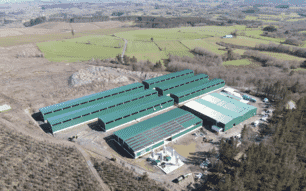Graphic Online reports that the Israeli mill, Raanan Fish Feed West Africa, is the first in West Africa to apply the technology of producing floating extruded fish feed for tilapia and catfish.
It currently produces between 1,000 and 1,400 tonnes of feed every month for both the local and the export markets.
Raanan sources 70 per cent of its raw materials locally, with the remaining 30 per cent, mainly vitamins and premixes, being imported from Israel .
The company has also set up an Aqua Culture Training Centre outside Kumasi in the Ashanti Region, in collaboration with the Ministry of Fisheries and Aquaculture, to impart knowledge on fish farming to backyard and small farmers.
It has also created a research centre for students at the KNUST in Kumasi to enable them to undertake scientific studies into aquaculture.
According to research, as confirmed by the Chief Executive Officer of Raanan Fish Feed West Africa, Mr Raanan Berzak, Ghana was among the top five fish consumers in the world, a situation which called for alternatives to make available sufficient fish to meet the demand.
He was of the view that the private sector was the best to be supported to achieve plans for building the fish sector.
He called for support from the government to encourage the private/public partnership to succeed in the aquaculture sector.
Mr Berzak said Ghana could become a paradise for fish farming and commended the Agricultural Development Bank and The Netherlands Government for supporting the project.
The Minister for Fisheries and Aquaculture Development, Mr Nayon Bilijo, who inaugurated the mill, said the current annual 420,000 metric tonnes fish output fell short of the national requirement by 460,000 metric tonnes.
That, he pointed out, represented more than 50 per cent of the deficit which the government made up for through imports of over $200 million annually.
"l am most delighted because just last week l launched the Ghana National Aquaculture Development Plan (GNADP) for the blueprint for the systematic and sustainable development of the aquaculture sector," he said.
He disclosed that his ministry was working with some regulatory institutions to clamp down on fish feed dealers who, over time, flooded the market with substandard products that were neither labelled nor had dates of manufacture and expiry indicated on them.
The Israeli Ambassador to Ghana, Sharon Bar-li, was of the view that the project was unique, as it showcased to investors how private sector partnership could work in Ghana.
She said the presence of the Raanan mill would reduce the industry’s dependence on imports, while "Ghanaian tilapia will be fed with Ghana-made fish feed".
Ms Bar-il was optimistic that at full capacity Raanan Fish Feed could make Ghana a regional exporter of quality feed.


